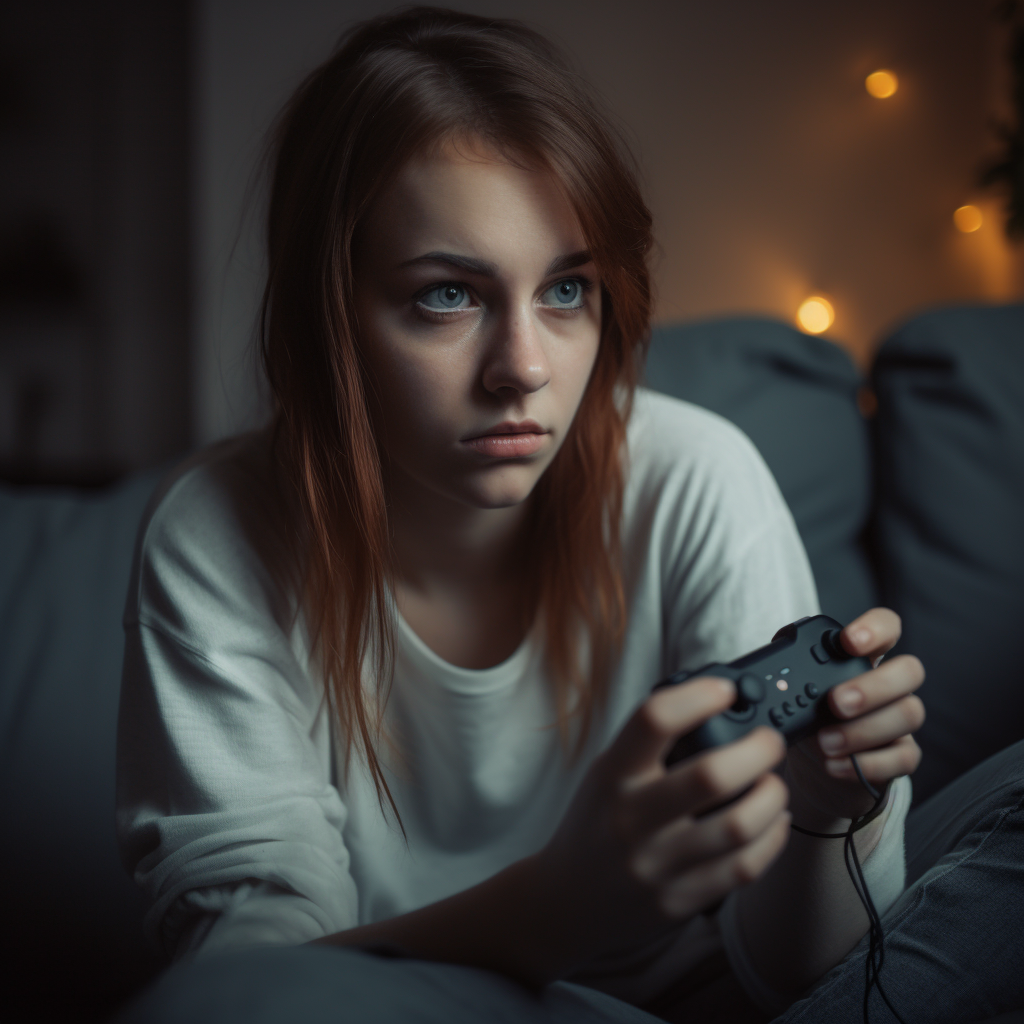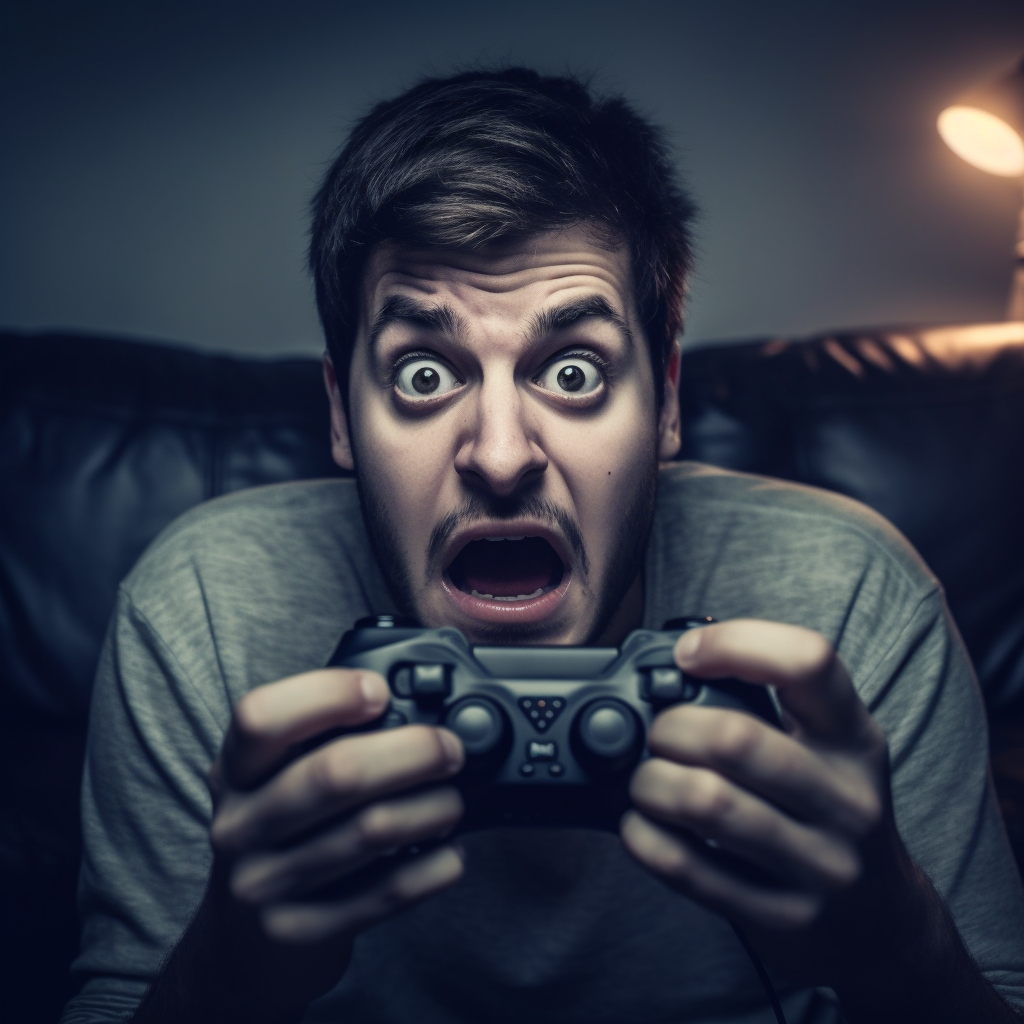Do you ever find yourself feeling overwhelmed by the multitude of responsibilities expected from video games? From never-ending quests and challenges to sorting through massive amounts of loot, it’s easy to understand why many avid gamers feel a sense of anxiety. In today’s blog post, we’re exploring the impact gaming can have on our mental health. We’ll discuss what signs may indicate that playing video games is causing excessive stress or feelings of intensity, as well as how you can manage your responses in order to continue enjoying your favorite titles responsibly. So let’s dive into this important topic and see what causes these anxieties —and more importantly— identify simple strategies to handle them!
What is Anxiety and How Can it be Triggered
Anxiety is a common emotion experienced by most people at some point in their lives. It is a feeling of worry or unease that can range from mild to severe. Anxiety can be triggered by a variety of factors, such as stress, trauma, and physical illness. In some cases, it can even be genetically influenced. Anxiety can manifest in different ways, including panic attacks, obsessive thoughts, and avoidance behaviors. Although it can be uncomfortable and even debilitating at times, there are ways to manage anxiety, including therapy, medication, and lifestyle changes. It’s important to recognize and address anxiety in order to improve one’s quality of life and overall well-being.
The Connection Between Video Games and Anxiety
As gaming continues to grow in popularity, many people have questioned the effects video games have on mental health, particularly anxiety. While some studies have suggested that excessive gaming can lead to anxiety, others have found that video games can actually be a tool for reducing stress and anxiety symptoms. One theory is that the immersive experience of gaming can distract individuals from anxious thoughts, offering a temporary escape from their worries. Furthermore, games that involve problem-solving and decision-making may improve cognitive flexibility, which can be beneficial for managing anxiety. Overall, the relationship between video games and anxiety is complex, but it’s clear that more research is needed to fully understand the potential benefits and drawbacks of gaming for mental health.
Pros and Cons of Playing Video Games
Video games have been a highly debated topic for years when it comes to the effect it has on individuals. Although video games have been around since the 1970s, there is still a lot that isn’t known about their impact on those who play them. While there can be many benefits to playing video games, such as improving cognitive skills and hand-eye coordination, there are also several drawbacks to consider. For instance, excessive gaming can lead to addiction, poor social skills, and a lack of physical activity. It’s important to weigh both the pros and cons before deciding if playing video games is the right choice for you.
Warning Signs of Game Addiction
As technology and the gaming industry continue to evolve rapidly, it’s becoming easier to lose track of time spent gaming. While playing video games can be a fun and even educational pastime, it’s important to recognize when it becomes a problem. Game addiction can start small, but over time it can lead to feelings of depression, anxiety, and even physical health problems. Warning signs of addiction can include excessive time spent gaming, neglecting personal responsibilities, and withdrawal from social activities. If you or someone you know shows these signs, seeking professional help may be necessary to prevent further harm. Remember, it’s important to prioritize your health and well-being over any form of entertainment.

Strategies for Limiting Screen Time
In the age of technology, it is becoming increasingly difficult to limit our screen time. Whether for work or leisure, we are constantly glued to our electronic devices. However, overexposure to screens can lead to negative effects such as eyestrain, insomnia, and increased feelings of loneliness and depression. It is important to implement strategies to limit our screen time in order to protect our physical and mental well-being. One effective strategy is to set a timer for ourselves when using electronic devices. This can help us be more mindful of how much time we spend scrolling through social media or binge-watching shows. Another strategy is to engage in non-screen activities such as exercise, cooking, or reading a book. By implementing these strategies, we can strike a balance in our use of technology and prioritize our health and well-being.
How to Manage Stress and Anxiety Related to Video Games
As much as we all love video games, it’s no secret that they can sometimes cause stress and anxiety. The good news is that there are lots of strategies you can use to manage these negative emotions and maintain your enjoyment of gaming. First, it can be really helpful to establish some boundaries and set limits on how much time you spend playing. You can also try using breathing exercises, meditation, or other mindfulness techniques when you feel overwhelmed. Speaking of mindfulness, trying to stay fully present at the moment while you’re gaming can help you feel more relaxed and centered. Finally, don’t forget to take breaks and engage in other activities that help you decompress, like exercise or spending time with friends and family. With these tips and tricks in your back pocket, there’s no reason you can’t keep gaming without sacrificing your mental health.
In conclusion, anxiety can manifest itself in various ways and is related to stress, emotions, mental illnesses, and physical symptoms. Video games are both beneficial and detrimental when it comes to their relationship with anxiety. It’s important to be aware of the warning signs of addiction as well as strategies for limiting gameplay and managing any anxiety or stress that may result from too much gaming. Finally, connecting with friends and family, staying active, taking breaks from technology, focusing on a nutritional diet, getting enough sleep, and practicing deep breathing exercises can all help in reducing anxiety relating to video games. Remember that if you ever find yourself feeling overwhelmed by your own emotions or a situation out of your control it’s best to reach out for help instead of relying solely on gaming as an escape from reality.




